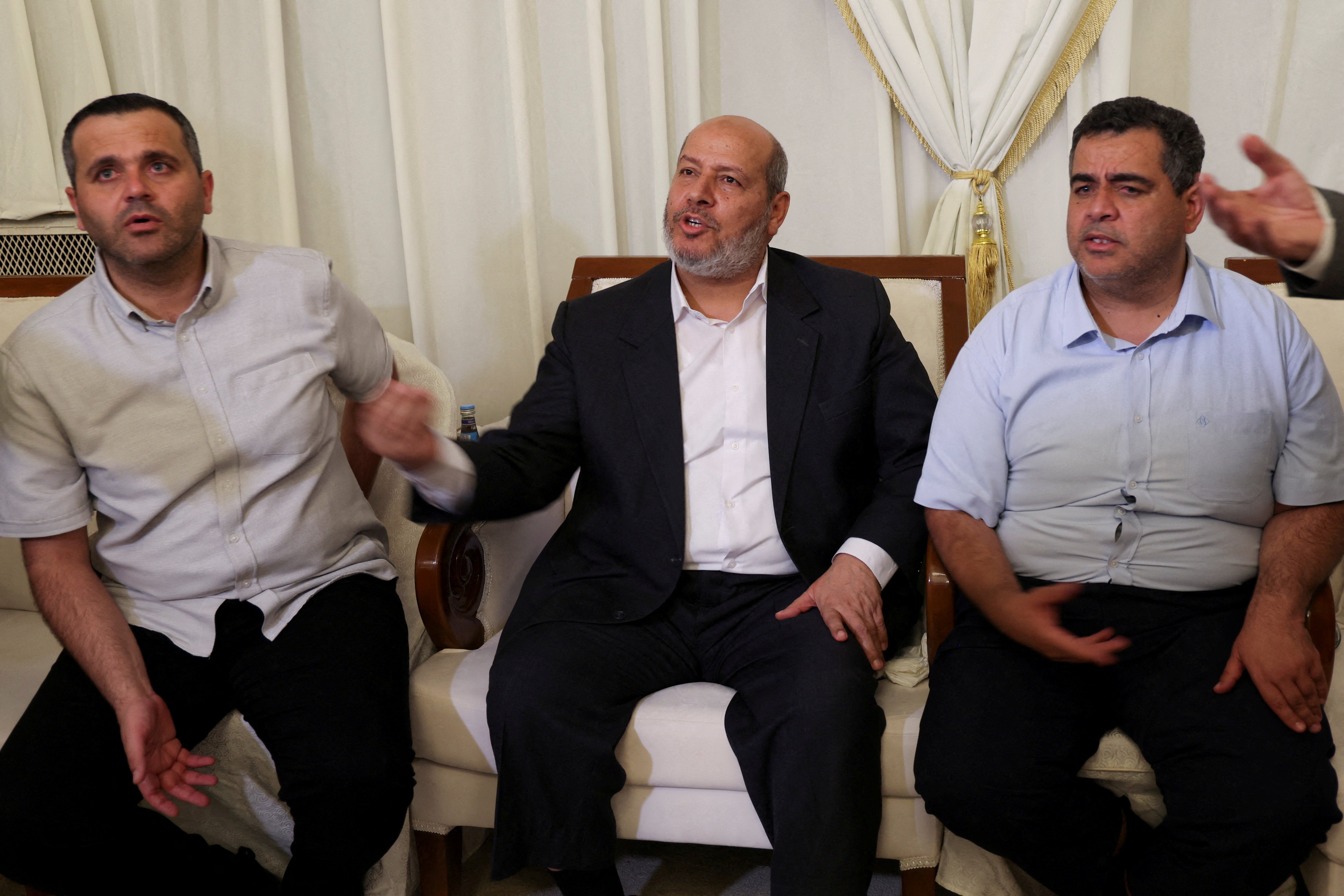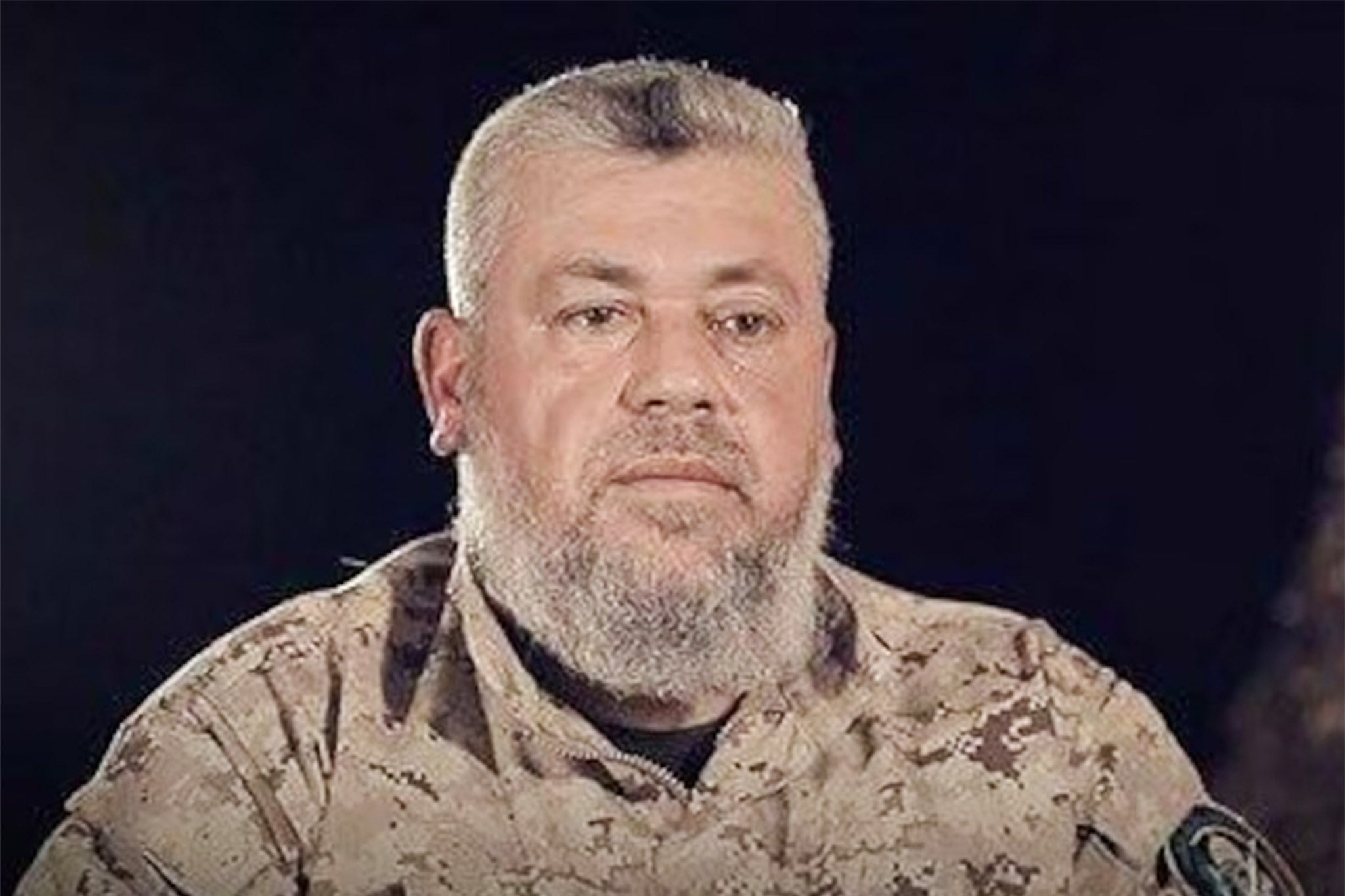Israel deliberately bombed the Hamas negotiating team in Qatar to remove what it said were extremists resisting ceasefire proposals for Gaza, Israel’s president said today.
Isaac Herzog, who is in London and due to meet Sir Keir Starmer this afternoon, said the strike was aimed at Khalil al-Hayya, the main Hamas negotiator based in Doha, whom Israel claimed had thwarted attempts at brokering peace.
Speaking in a briefing, Mr Herzog said: “We targeted those who refused to accept the deal, including primarily, al-Hayya whose hands carried the blood of thousands of Israelis.”
Also targeted were fellow Hamas politburo members Khaled Mashal and three others who were part of the group negotiating a ceasefire in Qatar via American mediators.
“He was one of the planners and instigators, and he was well informed and involved in October 7 [2023 when Hamas-led militants invaded Israel, killing 1,200 and abducting 250],” said Mr Herzog.
“He kept on procrastinating and not getting to a deal by refusing adamantly to get to a deal – sometimes saying ‘Yes’, sometimes saying ‘No’, and sometimes saying ‘Yes’, but his conditions were impossible to meet,” President Herzog said.
Six people died in Monday’s attack in Doha, including a Qatari security official. Hamas claimed that five of its members were also killed, but none of its negotiating team. Mr Herzog could not confirm whether the Hamas leaders were killed in the attack.
The strikes were roundly condemned by the Qataris, who lashed out at Israel’s “reckless behaviour”, while criticism also came from Arab leaders, Sir Keir and Donald Trump, who said he was “not happy” with the bombing.
An Israeli source explained that the aim of the operation was to cut the “extremists” out of the negotiating process so that the leader on the ground, Izz al-Din al-Haddad, commander of the Qassam Brigades of Hamas, might emerge as a figure Israel could talk to.
It is understood that Israel sees the Hamas leadership structure, which reaches decisions by consensus, as dominated by hardliners among the exile community in Qatar who have scuppered peace plans.

They said they believe that a more pragmatic approach could be found from leaders on the ground in Gaza who are dealing with the bloody reality of Israel’s campaign there.
Israel’s focus on communicating with Hamas leaders on the ground in Gaza could be designed to assist its military operation by creating divisions in the Hamas leadership, suggesting that its military leader was a more willing partner in a ceasefire.
But Israel has ridden roughshod over relations with Qatar and many other countries in the Middle East, where authoritarian leaders may quietly approve of getting rid of Hamas – a violent Islamist movement of the kind that is banned in the Gulf and Egypt.
Haddad, 55, is a founding member of Hamas. Israeli sources said he is known as a deeply devout Muslim who commands the respect of his followers.
He is experiencing at first hand Israel’s onslaught, which has killed 67,000 people, according to local officials – more than half of whom have been women and children.
“He might be someone we can deal with and reach an agreement,” a senior Israeli official said.

But Israel has also been blamed for holding up ceasefire proposals to secure the release of the remaining 20 or so living hostages held in Gaza.
Prime minister Benjamin Netanyahu has launched a campaign to clear Gaza City, forcing a million Palestinians south amid criticism at home that the latest round of violence will jeopardise the lives of the hostages – a view firmly held by the Israeli military leadership.
Anger at Israel’s attack on Hamas in Qatar – which violated Qatar’s sovereignty – will strain relations with the US, which has its biggest air base for the Middle East on the tiny island emirate.







